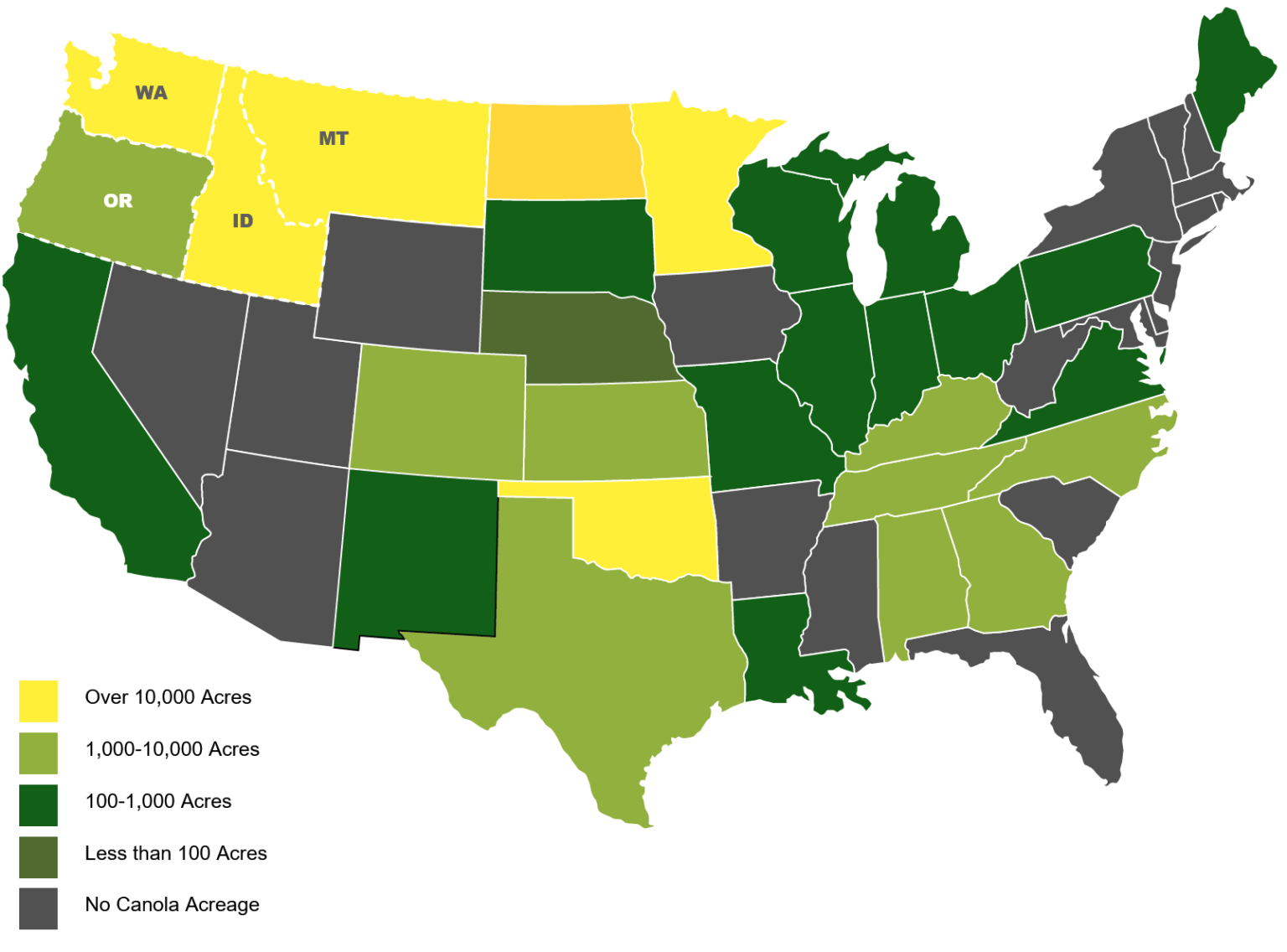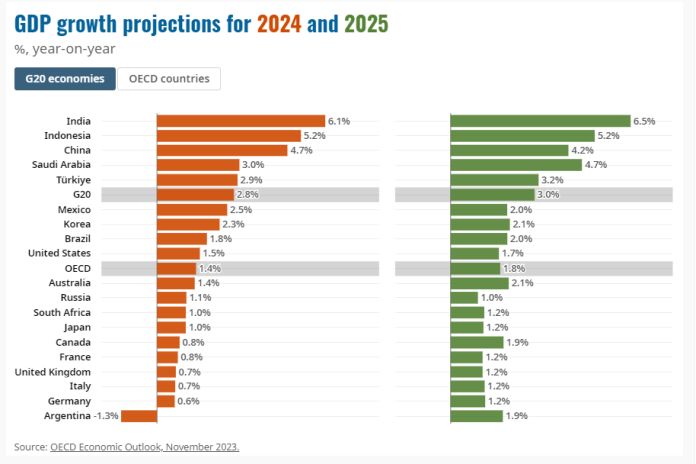China's Canola Supply Chain: Adapting To The Canada Fallout

Table of Contents
The Impact of Reduced Canadian Canola Imports on China
The decrease in Canadian canola imports has had profound effects on China's agricultural and economic landscape.
Disruption to Domestic Processing
Chinese canola oil refineries and food manufacturers, heavily reliant on Canadian canola, faced immediate challenges.
- Increased Production Costs: Sourcing canola from alternative suppliers often involves higher transportation costs and potentially less favorable trade agreements, significantly increasing production costs for Chinese processors.
- Potential Shortages: The sudden reduction in Canadian supply created potential shortages of high-quality canola oil and meal, impacting the availability of essential ingredients for numerous food and industrial applications.
- Downstream Industry Impacts: The food and feed sectors, significant consumers of canola oil and meal, experienced ripple effects, including price increases and potential supply chain bottlenecks. This impacted everything from cooking oil to animal feed production.
Price Volatility and Market Instability
The reduction in Canadian canola imports led to significant price volatility in the Chinese market.
- Consumer Price Impacts: Fluctuations in canola prices directly affected consumer prices for various food products containing canola oil. This had a noticeable impact on the affordability of essential goods for many Chinese consumers.
- Market Speculation: Uncertainty surrounding the future supply of canola fueled market speculation, exacerbating price swings and creating instability for businesses operating within the canola supply chain.
- Government Intervention: The Chinese government implemented measures to mitigate price volatility and ensure market stability, including potential price controls or strategic reserves, highlighting the crucial role of canola in the nation's food security.
Geopolitical Implications
The Canada-China canola dispute is not solely an economic issue; it has significant geopolitical implications.
- Alternative Supply Sources: China actively sought alternative suppliers, including Australia, Ukraine, Russia, and Brazil, diversifying its import portfolio to reduce dependence on a single source.
- Global Market Dynamics: The dispute significantly impacted global canola market dynamics, creating new trade relationships and influencing price fluctuations in international markets.
- Food Security Concerns: The episode highlighted the vulnerability of China's food security in relying heavily on imports of a key agricultural commodity. This spurred efforts to strengthen domestic production and diversify supply chains.
China's Strategies for Adapting its Canola Supply Chain
China's response to the reduced Canadian canola imports has involved a multi-pronged strategy focusing on diversification, domestic production, and technological advancements.
Diversification of Supply Sources
China actively pursued relationships with alternative canola-producing nations.
- Supplier Evaluation: Each alternative supplier presented unique advantages and disadvantages regarding price, quality, transportation logistics, and political stability. Factors like distance and existing trade relationships played a crucial role in selection.
- Logistical Challenges: Sourcing from geographically distant countries presented significant logistical challenges, including longer transportation times and increased shipping costs.
- Price and Quality Variations: Canola from different sources varied in price and quality, requiring adjustments in processing techniques and potentially impacting the final product.
Domestic Canola Production Expansion
Boosting domestic canola production became a key priority for China.
- Government Support: The Chinese government introduced policies aimed at incentivizing domestic canola farming, including subsidies, improved infrastructure, and research funding.
- Yield Improvements: Technological advancements, improved farming techniques, and the introduction of high-yielding varieties contributed to increased domestic canola production.
- Self-Sufficiency Goals: While complete self-sufficiency remains a long-term goal, significant progress has been made in reducing reliance on imports.
Technological Advancements in Canola Processing
China is investing in technological improvements to enhance the efficiency and quality of its canola processing industry.
- Oil Extraction: Advancements in oil extraction methods improve yield and reduce waste, maximizing the value obtained from each ton of canola.
- Quality Control: Investments in advanced quality control and testing technologies ensure consistent quality and safety standards throughout the processing chain.
- Supply Chain Optimization: Technology plays a vital role in optimizing the entire canola supply chain, from farming to processing and distribution, through improved traceability and inventory management.
The Future of China's Canola Supply Chain – A Path to Resilience
China's response to the disruption in its canola supply chain demonstrates a commitment to building resilience. The challenges posed by the reduction in Canadian imports highlighted vulnerabilities and spurred crucial adaptations. Diversifying supply sources, expanding domestic production, and adopting technological advancements are essential components of a more secure and stable future for China's canola industry. Ensuring the long-term stability of China's canola supply chain is vital for its food security and economic growth. The ongoing need for strategic planning and adaptation within China's canola supply chain is paramount. We encourage further research and discussion on this critical topic. Share your thoughts and insights on securing China's canola supply chain in the comments section below.

Featured Posts
-
 Fox News Jeanine Pirro Named Trumps Top Dc Prosecutor
May 09, 2025
Fox News Jeanine Pirro Named Trumps Top Dc Prosecutor
May 09, 2025 -
 3 000 Babysitter Bill A Precursor To A 3 600 Daycare Bill
May 09, 2025
3 000 Babysitter Bill A Precursor To A 3 600 Daycare Bill
May 09, 2025 -
 Planned Elizabeth Line Strikes Impact On February And March Services
May 09, 2025
Planned Elizabeth Line Strikes Impact On February And March Services
May 09, 2025 -
 Assessing Nigel Farages Reform Party Can It Deliver Real Change
May 09, 2025
Assessing Nigel Farages Reform Party Can It Deliver Real Change
May 09, 2025 -
 Chinas Impact On Bmw And Porsche Market Slowdown And Future Outlook
May 09, 2025
Chinas Impact On Bmw And Porsche Market Slowdown And Future Outlook
May 09, 2025
